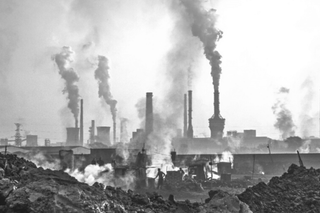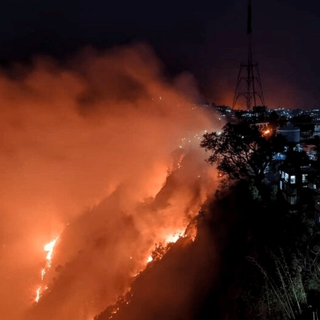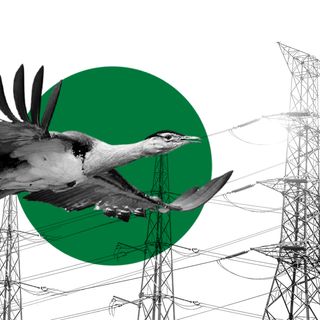
World Will See Second‑Largest Rise Ever in Carbon Emissions in 2021: Report
The International Energy Agency’s annual report says the expected increase is primarily due to the rising demand for coal.

2021 is slated to witness the second-largest rise in carbon emissions worldwide in history, according to the International Energy Agency’s (IEA) annual report.
The surge in carbon emissions is expected to be driven by the rising demand for coal, and will rise by almost 1.5 billion tonnes. According to the report, China is expected to account for more than half of the increase in global emissions, followed by the U.S., the E.U., and India. The electricity sector will lead the demand for coal as it continues to rely largely on non-renewable sources of energy, IEA notes. Carbon emissions from coal contribute significantly to global warming — the findings are thus worrying as they suggest a worsening climate crisis in the years ahead.
“Unless governments around the world move rapidly to start cutting emissions, we are likely to face an even worse situation in 2022 … This is a dire warning that the economic recovery from Covid crisis is currently anything but sustainable for our climate,” Fatih Birol, Executive Director of the IEA, said in a statement.
The pandemic-induced lockdowns had resulted in an economic slowdown worldwide last year, because of which global carbon dioxide emissions dropped by 5.8%. However, by December, emissions began rebounding to pre-Covid19 levels — in India, too, emissions rose above 2019 levels by September itself as restrictions loosened and economic activities resumed.
At present, India is the world’s third-largest emitter of carbon dioxide. BP Energy Outlook had predicted the share of coal in energy consumption to reduce from 56% in 2017 to 48% by 2040; NITI Aayog predicted it will fall to 44%. While India has previously expressed long-term plans to reduce its consumption of coal, experts find these ambitious goals unfeasible. “There are scenarios where the share of coal can even increase,” Rahul Tongia, a fellow with think tank Brookings India, told The Economic Times.
India is a party to the Paris Agreement, and was the only country last year, out of all the G20 nations, which was on track to meet the Paris Agreement‘s goal of limiting global heating. In fact, one of the main roadblocks preventing the country from doing even better was found to be its reliance on coal. “India could become a global leader if it abandoned plans to build new coal-fired power and phases out coal use for power by 2040,” the IEA report noted.
Related on The Swaddle:
Zimbabwe Bans Coal Mining In National Parks And Along River Beds
Besides global warming, coal-burning is a major pollutant of water too — coal ash, generated by the power sector, makes its way into ponds, lakes, and other waterways, and over time, contaminates drinking water supplies. The smog and haze from coal burning can also significantly damage human health by leading to respiratory illnesses, brain damage, heart problems, cancer, neurological disorders, and even premature death.
The harms of coal-burning become more pronounced during the pandemic. On the one hand, we know that coal-burning is one of the largest contributors to air pollution in India; several studies have linked air pollution to higher Covid19 mortality rates — indicating how closely coal-burning is linked to public health. The intersection extends beyond the ongoing pandemic: air pollution has also been linked to miscarriages, anemia, and even shortened lifespans; Indiareported the most infant deaths due to air pollution globally in 2019.
At the same time, several sectors, including healthcare, are heavily reliant on coal-based energy to function. As India’s healthcare system finds itself overburdened by the pandemic yet again, it is important to remember “national ambitions for health, economic growth, and environmental sustainability should be designed to complement one another, not as individual goals,” Marcus Arcanjo, a fellow at the Climate Institute in Washington D.C, a non-profit promoting global climate mitigation, and adaptation strategies, writes.
Caught at an impasse, the only way ahead is to urgently find safer, renewable alternatives — not only to keep global warming in check but also to urgently save lives.
“A lot of conflict, inadequate health infrastructure, poverty, and inequality stems from our indiscriminate misuse of fossil fuels,” Padmini Gopal, a climate policy researcher from New Delhi had told The Swaddle last year. “Conversations about climate change and public health management should not enter public discourse only on the brink of catastrophe. Let’s hold governments and corporations accountable while we can.”
Devrupa Rakshit is an Associate Editor at The Swaddle. She is a lawyer by education, a poet by accident, a painter by shaukh, and autistic by birth. You can find her on Instagram @devruparakshit.
Related


Mizoram Forest Fire Spreads to Town After Burning for More Than 30 Hours
